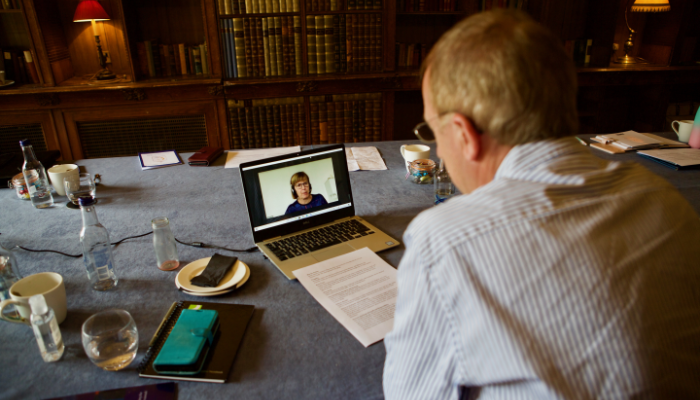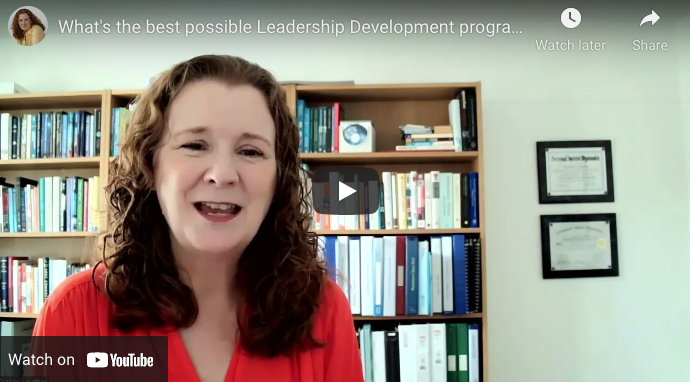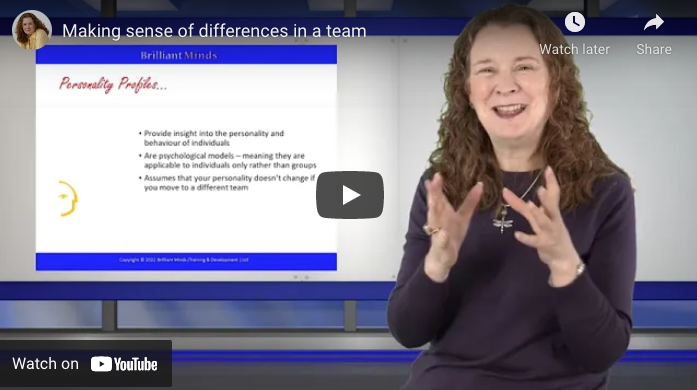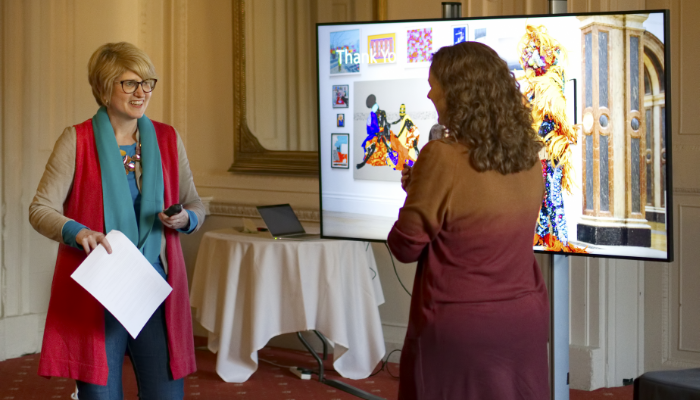[Video] Six things you probably need to know about Neuro-Linguistic Programming

Even if you’ve already decided that NLP is a load of b***ocks. Even if you’re already certified as a Practitioner of NLP. There are some things you might not know about NLP that will make a difference to you...
[Article] How to blow your own trumpet without sounding big-headed

In social situations it's not always appropriate to blow your own trumpet. But when it comes to securing the job you’ve always wanted or a prestigious contract, it’s important that you are the star of the show and that your value is easy to communicate. It’s also relevant for performance reviews and any kind of audit.
[Article] Breaking the back-to-back meetings bind

Now that most business have returned to a ‘normal’ level of work, albeit partly from home now, the number of meetings going on seems to have risen alarmingly. In recent weeks I’ve had several clients and contacts confide in me their stress at having days of back-to-back meetings.
What makes a good leadership team?

When we think about leadership, it’s often related to an individual. The word conjures up a person who provides direction, who inspires and encourages others and who gets results. Many people in leadership roles find it a daunting prospect. It’s easy to get caught up in the idea of famous and fabled leaders and to find oneself wanting in the comparison. This is where the value of a leadership team comes in.
[Video] The Very Best Leaders Do This

Most people who know me know that I spend a lot of my time with senior people in organisations, teaching them about NLP, the LAB Profile, their leadership skills and so on. Recently, though, I've been working with more junior members of a team in a small, but very progressive, organisation.
[Article] Lessons from Queen Elizabeth II

I never met the Queen and it wasn’t something I felt a great desire to do. Nonetheless, I found much to admire in her and in certain other members of our Royal family. While the lives of royalty may be far removed from the lives of we ‘ordinary’ folk, there are still ways in which we can learn from their successes.
[Article] What is ‘well-being’?

Well-being is a term that is familiar to most people. That hasn’t always been the case, though. There was a time when, especially in the workplace, nobody talked about how anyone felt. The focus was on what we did, how efficient and effective we were and whether we were capable of performing at a higher level.
[Video] What’s the best possible Leadership Development programme?

I've got a question for you... Do you ever think, deep down, maybe so deep down that you've never even consciously thought it to yourself, and certainly you wouldn't say it out loud... Do you ever think that somebody as clever as you are shouldn't have to work as hard as you do?
[Article] How can I set goals if I don’t know what I want?

Have you ever found yourself wondering what your goals are? Not because you haven’t thought about them, but because you haven’t got anything in mind that you want to commit to, that you’re excited about doing, or that looks like a meaningful challenge. It happens to most people at some point.
[Video] Making sense of differences in a team

People often ask me: "What are the best tools for understanding the way that people are in teams?" So I thought it would be helpful to have a clear idea of the different types of models and how they are useful...
[Video] Be the Best

In this video I explore something I heard on the radio in an interview with the former Rugby Union player, Will Greenwood. One of the things he said that stuck with me was: "Be the best at things that don't require any talent or skill".
[Article] Why leaders need to work in teams

The SCARF model (developed by David Rock) is based in neuroscience. It defines the key requirements for keeping the human brain in Reward mode and out of Threat mode. The focus of this article is how, as leaders, we can use the SCARF model to maintain our own performance.




